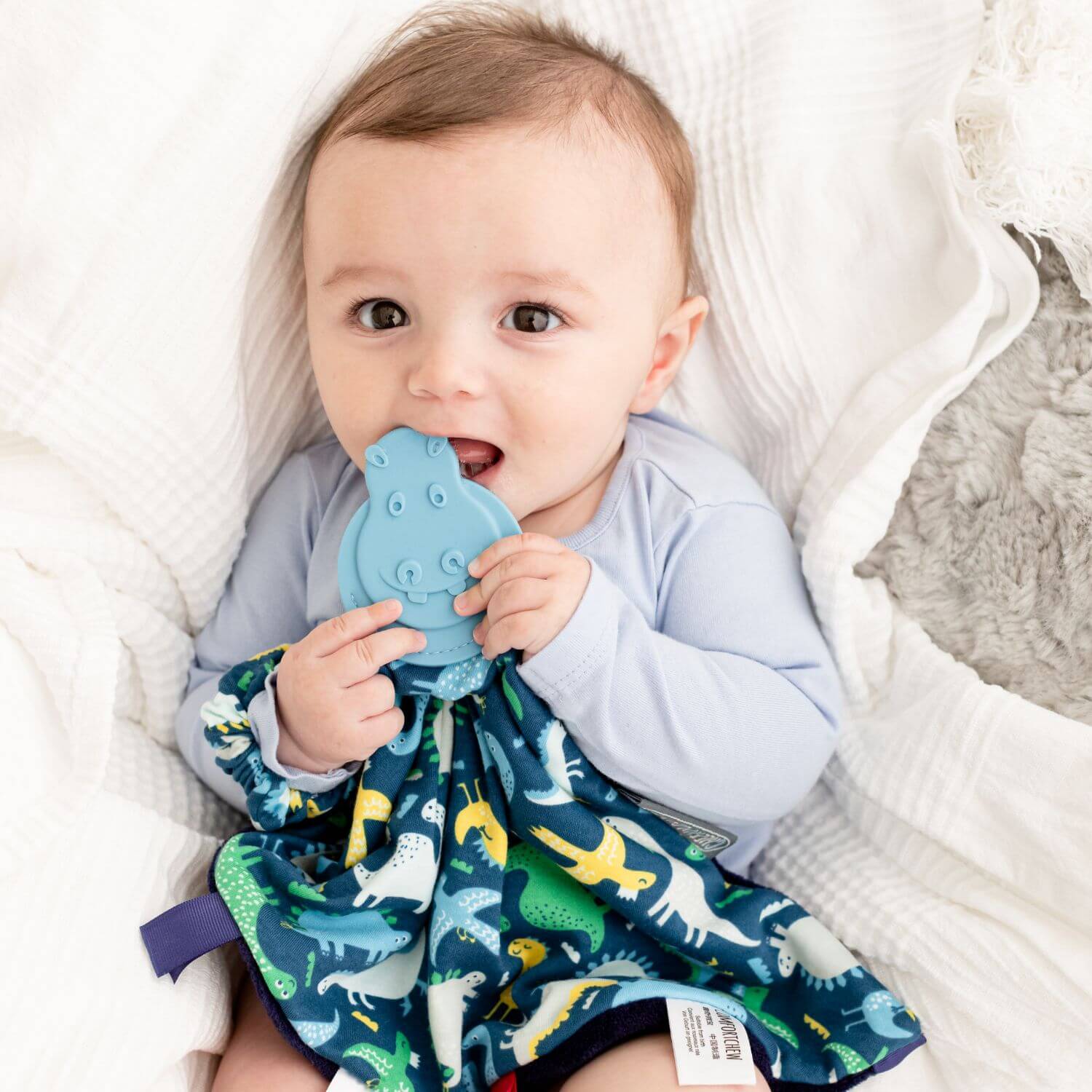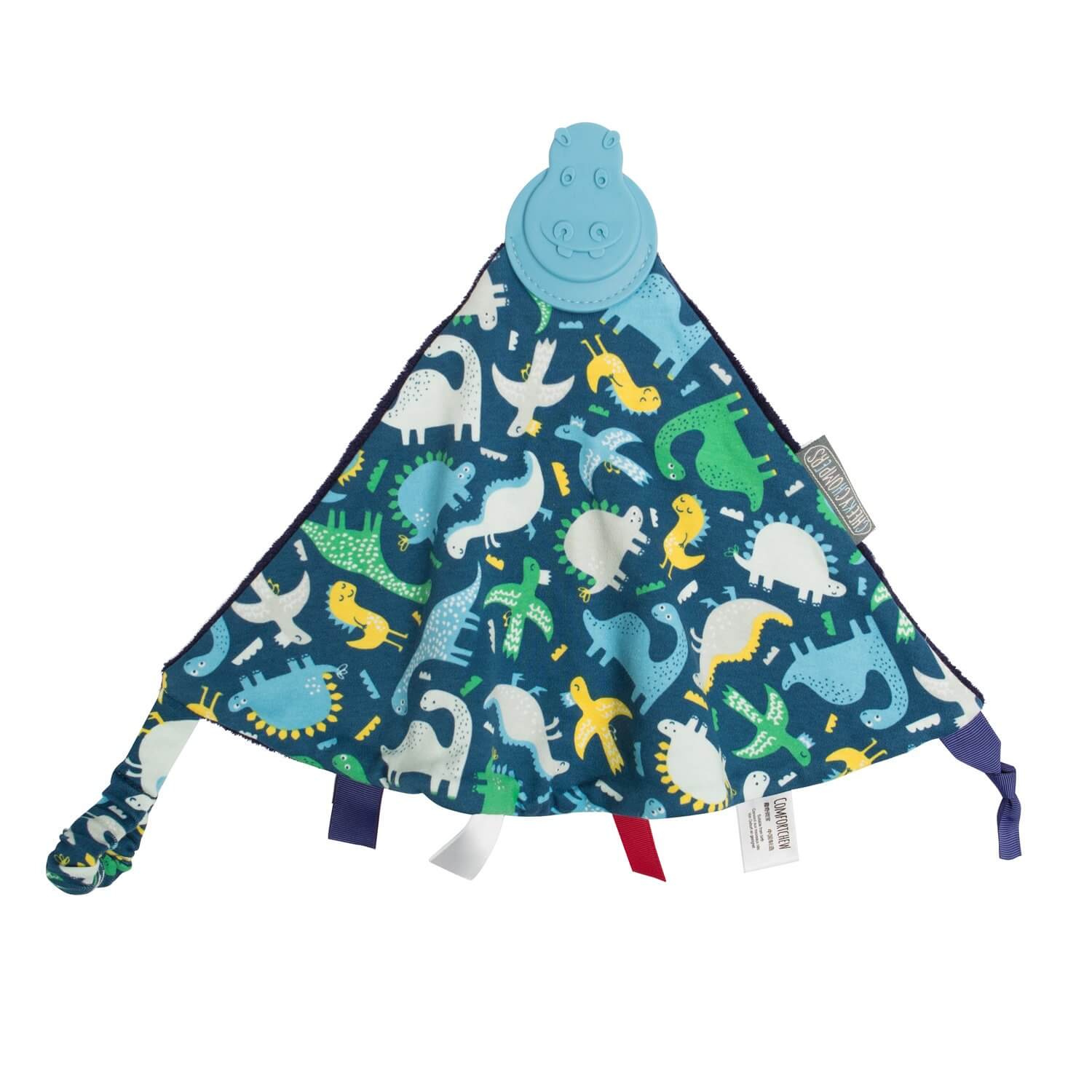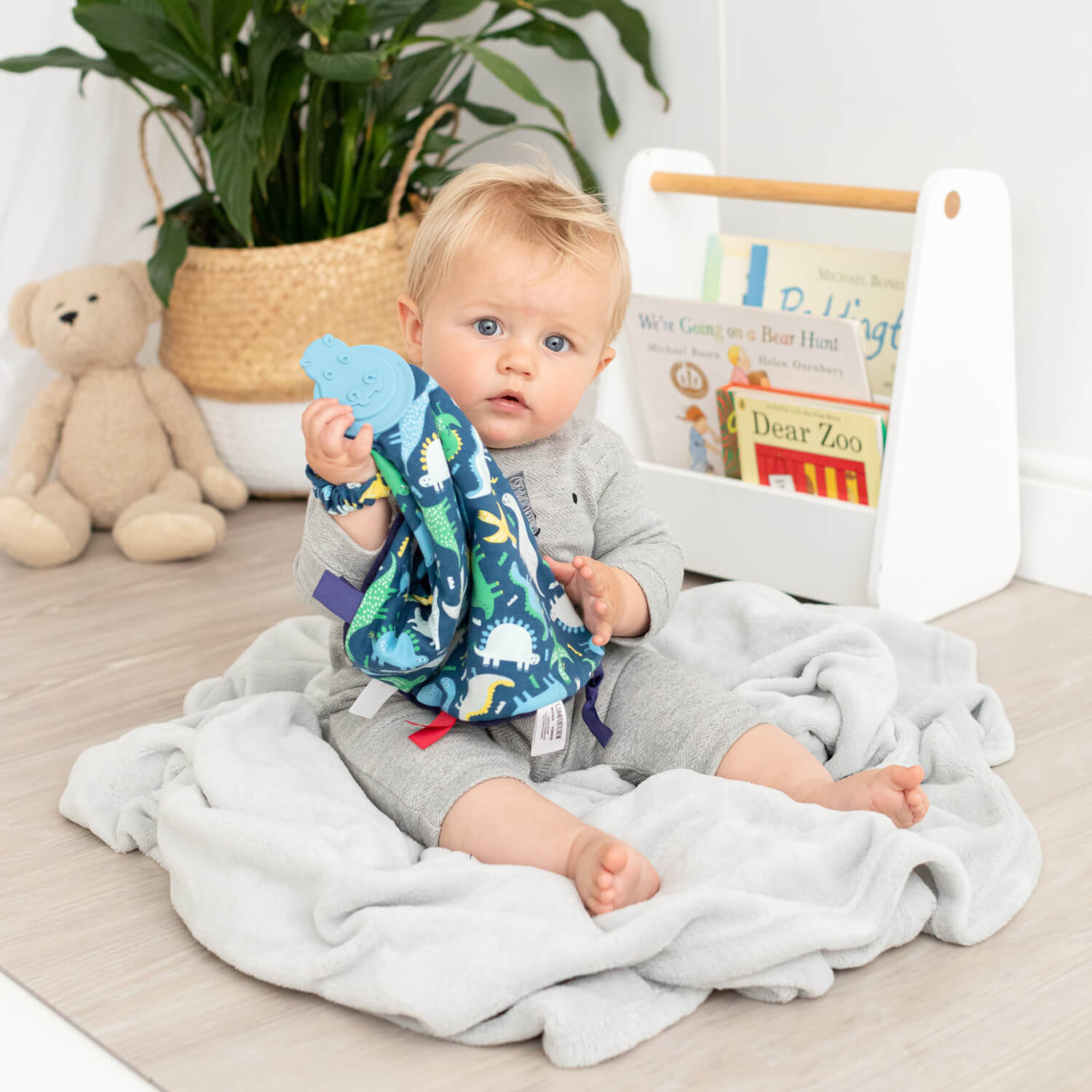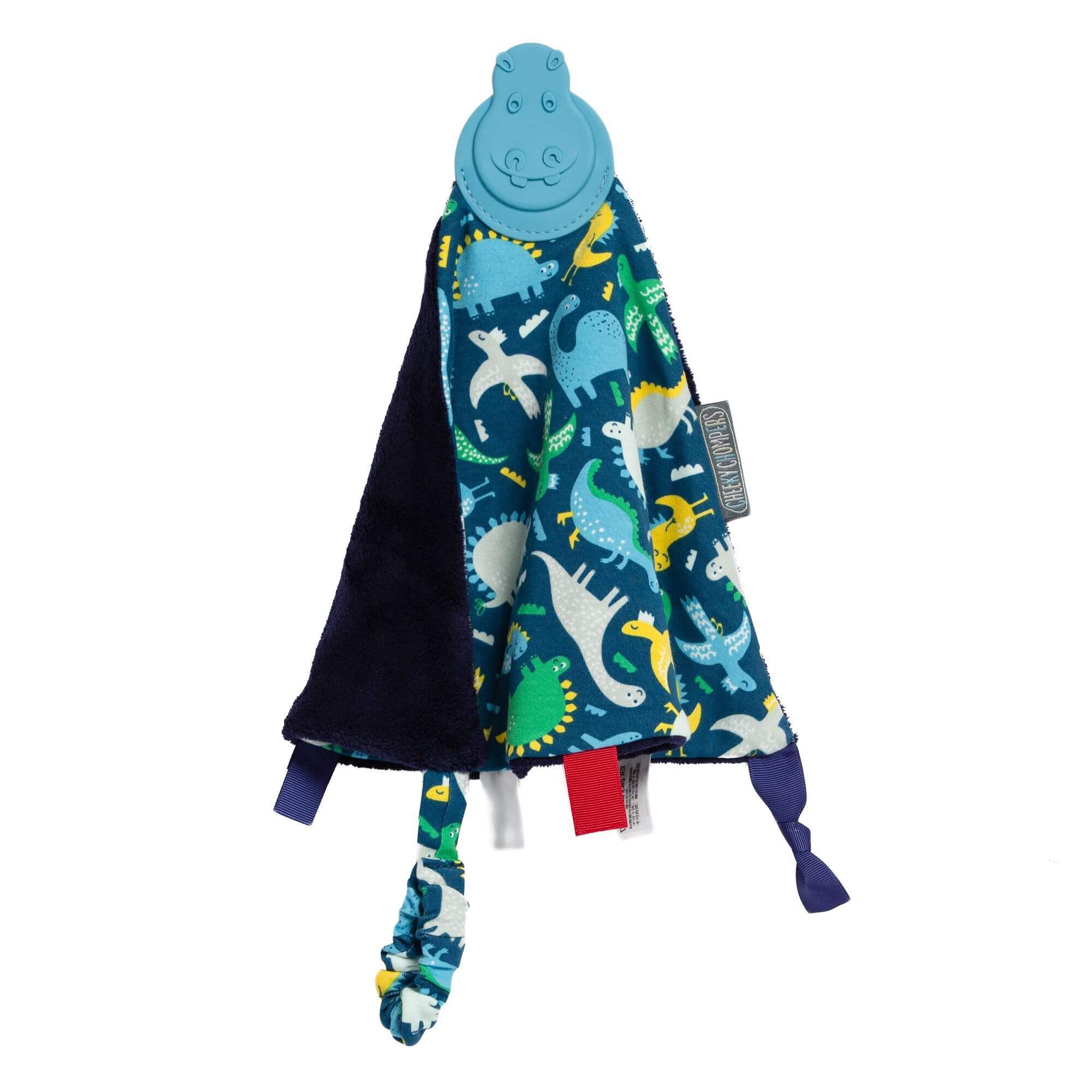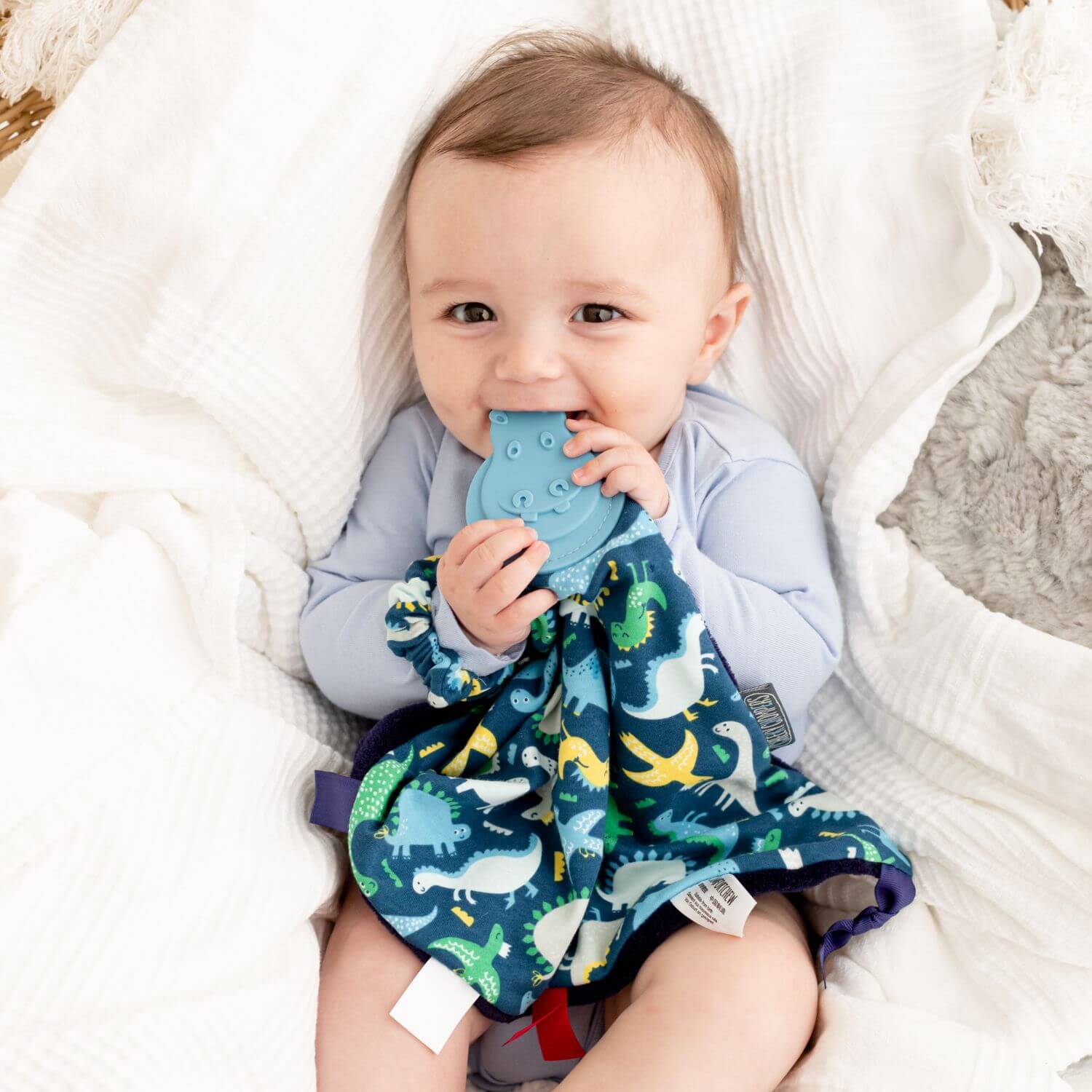When do babies start teething?
Teething can sometimes catch you and your little one out...one day they are happy and in aperfect routine, the next, you’re both a hot, cranky mess!
If you’re not sure whether it’s teething or not, Cheeky Chompers blog can help you to understand the symptoms.
Babies vary as we all know, so when they start teething will vary too! Teething tends to kick off when your baby is around 6 months old. However, it can start anytime between 3 and 12 months of age.
Not all babies will experience symptoms during teething, some teeth may simply appear. For some teething can be distressing, but there are ways to make it easier for them (and you!).You are definitely not alone!
We have lots of easy and practical teething tips to help support youand your baby through teething.
